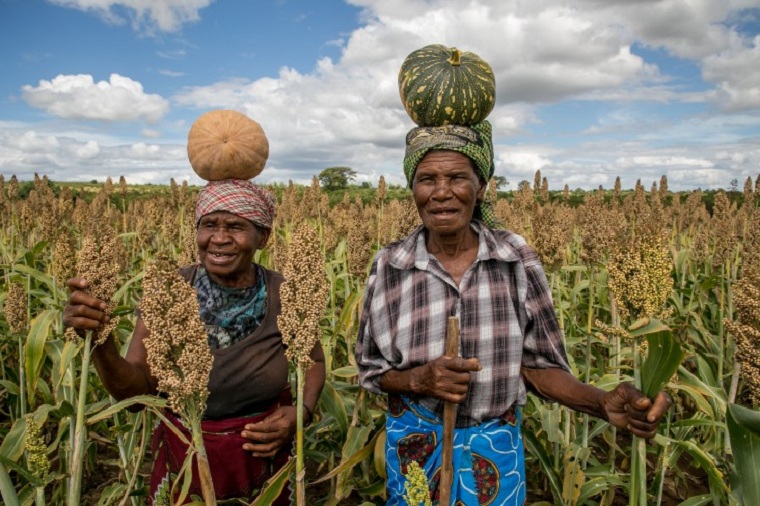 The United States Agency for International Development has finally responded to questions about its US$19.8 million Fostering Agribusiness for Resilient Market (FARM) programme in Zimbabwe, almost two months after the questions were sent and five days after The Insider published its story.
The United States Agency for International Development has finally responded to questions about its US$19.8 million Fostering Agribusiness for Resilient Market (FARM) programme in Zimbabwe, almost two months after the questions were sent and five days after The Insider published its story.
However, it gave the impression that the answers were prepared some time ago but somehow did not get to The Insider.
The response, however, does not answer specific questions asked but gives general policy responses.
Below is the full response including the questions that were sent:
Question: I am a Bulawayo based semi-retired journalist. On May 11, the Embassy announced a $19.8 million, five-year programme with Chemonics International. I have been going through some USAID reports and realize that Chemonics has been involved in a number of “scandals” in its contracts with USAID like discrimination on employing African-Americans, not implementing projects on time and so on. Why was it chosen for the Zimbabwe project, which I believe is not the first in this country, because I am made to understand that it did a shoddy job on a health programme in Zimbabwe and worldwide. How much of the $19.8 million is going into fees for Chemonics because I understand that USAID goal is to further American interests and the biggest beneficiary of the US foreign assistance in the US itself? I would be most grateful for any early response.
Response: USAID’s procurement guidelines stipulate that we conduct a full, open, and transparent competition with published evaluation criteria as well as a rigorous competitive selection process when selecting our implementing partners.
The Feed the Future Zimbabwe Fostering Agribusiness for Resilient Market (FARM) activity went through a full and open competition, and Chemonics was selected based on that process. It will target 20,000 households in Manicaland and Masvingo provinces and provide innovative technical training and assistance to smallholder farmers to increase their productivity, bolster crop and livestock sales, and improve household nutrition and hygiene, ultimately reducing rural poverty and improving household incomes. More information: https://www.usaid.gov/zimbabwe/press-releases/usaid-announces-new-program-combat-food-insecurity-zimbabwe
In Zimbabwe, a strong partnership under the Global Health Supply Chain Procurement and Supply Management contract has ensured that HIV/AIDS commodities reach patients who need them most. While the overall health system in Zimbabwe is facing many challenges, the HIV/AIDS supply chain continues to perform normally, in part because of our continued support to the national warehouse, transportation and delivery system, and logistics management. For example, through the supply chain management contract, over 2.5 million bottles of the new life-saving ARV drugs, TLD, were delivered across the country in October 2019.
The United States Emergency Plan for AIDS Relief (PEPFAR) and USAID provides life saving ARV treatment to over 1.1 million Zimbabweans living with HIV.
Since Zimbabwe’s independence in 1980, the United States has provided $3.2 in assistance. Nearly $1.2 billion of this is in health assistance, which strengthened the systems that are now the foundation for COVID response. We have just announced an additional $10 million in COVID-19 funding for humanitarian assistance for over 100,000 vulnerable people in eight urban areas. This brings the United States’ total COVID-19 contributions to over $18 million and it builds on our long-term core investments.
It should also be noted that the U.S. Government takes allegations regarding misuse of resources and discrimination very seriously. Any allegations are referred to the USAID Office of the Inspector General; an independent office responsible for investigating such claims. Questions regarding possible investigations should be referred to the Office of the Inspector General.
Finally, partner budgets are closely evaluated to determine that all proposed costs are fair and reasonable, and partners are held responsible for achieving results.
The Insider story: https://www.insiderzim.com/who-is-really-benefitting-from-the-usaid-us19-8-million-food-insecurity-project-in-zimbabwe/3/ highlighted that USAID benefitted American companies more than the so-called beneficiaries.
It also highlighted that Chemonics had been mentioned in several congressional hearings for doing shoddy work with one report even suggesting that this was probably because one of its major shareholders, how deceased, had been a director at USAID.
Click link below to receive free updates by whatsapp
https://chat.whatsapp.com/IjKB2tQriIv3s0CUZMVUPS
(72 VIEWS)


